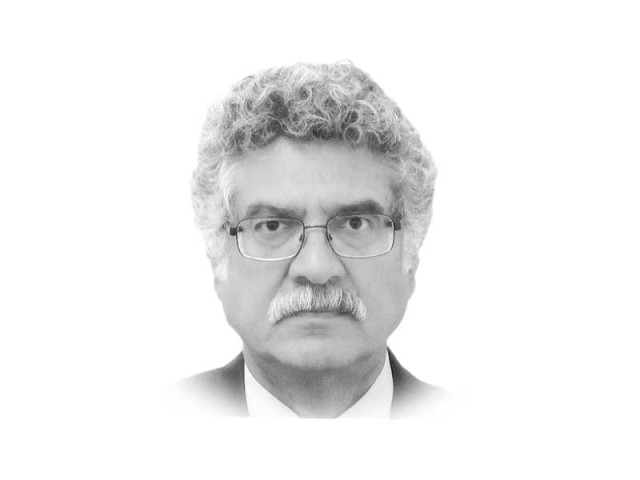Kashmir carnage
the UN’s High Commissioner for Human Rights, Zeid Ra’ad al Hussein has highlighted the Kashmir carnage

The writer is a former ambassador of Pakistan. The views expressed here are his own
The high commissioner’s report lays bare these gross and consistent Indian violations of human rights over seven decades, the latest phase of which started after the killing of Burhan Wani in July 2016. It highlights the indiscriminate and disproportionate use of force against protesters, many of whom are “ young, middle-class Kashirmiris, including females and minors”. Though India denied the high commissioner’s request to send a fact-finding team to IOK, the report is based on “remote monitoring”— information provided by credible sources, including international human-rights NGOs. It accuses India on multiple counts of human rights violations, including — denial of access to justice and impunity for Indian security forces due to laws such as armed forces (Jammu and Kashmir) Special Powers Act and Jammu and Kashmir Public Safety Act; use of military courts and tribunals which have not convicted even a single soldier; illegal administrative detention without due process; excessive use of force against civilians such as use of pellet guns, including against minors and females; deliberate shooting at and killing of protesters at peaceful rallies and funerals; arbitrary arrests and detentions, including of children; use of torture; enforced disappearances of at least 8,000 people since 1989; denial of access to health and education; restrictions on the right to freedom of expression; reprisals against human rights defenders and restrictions on journalists; use of rape, torture and reprisals by security forces, as instruments of policy, such as the Kunan Poshpora incident, leading to over 143 cases of sexual violations. According to officially verified estimates, the report maintains that just between 2016 and 2018, Indian forces killed over 145 civilians which also included the use of human shields by the troops.
In order to be balanced, the report also assess the human rights situation in the Pakistan-administered areas of Azad Kashmir and Gilgit-Baltistan, but admits that the situation there is of a “different caliber or magnitude and of a more structural nature”. It also notes that Pakistan agreed to give access to a UN team only if India did the same.
This highly damaging UN report makes a major departure from the traditional consideration of the human rights situation in occupied Kashmir by the Human Rights Council and the office of the High Commissioner, which was mainly limited to statements by Pakistan and some NGOs, mainly of Kashmiri origin. The high commissioner, therefore, needs to be commended for his courageous report despite pressure from the Indians and their allies, who include, ironically human rights stalwarts, like the US, the UK, France among others. The report also lays the foundation for further action on Kashmir in the Human Rights Council in Geneva and the UN General Assembly in New York. The report itself, for instance, calls for an independent investigation into these Indian human rights violations in IOK. This could be done by an investigator appointed by the Human Rights Council. The council can also mandate one or more of its relevant special rapporteurs to conduct such an investigation.
For Pakistan, the high commissioner’s report provides a major opening to project the Kashmir cause, and to, at least, call for an immediate end to the human rights violations in IOK by Indian forces. Unfortunately, in recent years, Pakistani governments have not seriously focused on the Kashmir dispute in spite of the continuing carnage in the valley. They have made lame speeches in the UN and sent inept special envoys on junkets to Western capitals. This is because their preference has been for resuming the dialogue with Modi’s India, which is essentially an exercise in futility.
Meanwhile, Modi has unleashed the worst campaign of brutal repression against Kashmiri Muslims and is even trying to change the demographics of the occupied state by encouraging Hindu settlements. Recently, he engineered the fall of the puppet coalition government in Srinagar by withdrawing BJP support and imposed central rule. His purpose is to further escalate violence against the Kashmiris and across the LoC as an election stunt to consolidate support for the BJP in the 2019 polls by playing on nationalistic sentiments. While such a devious ploy may succeed in the elections, it will miserably fail to put down the Kashmiri uprising. But even a braggart like Indian army chief, Bipin Rawat, has now publicly recognised that the Kashmir situation can only be resolved through dialogue.
Pakistan must immediately seize the opportunity to project the Kashmir dispute and the rights violations in IOK in the relevant fora of the UN and in the major capitals of the world. Our emphasis must be on the need to find a political settlement based on the wishes of the Kashmiri people. Pending such a solution, there must be an immediate end to the Indian violations of Kashmiri human rights. We should also invite UN fact-finding teams to visit our side of Kashmir as we have nothing to hide.
Published in The Express Tribune, June 28th, 2018.
Like Opinion & Editorial on Facebook, follow @ETOpEd on Twitter to receive all updates on all our daily pieces.
















COMMENTS
Comments are moderated and generally will be posted if they are on-topic and not abusive.
For more information, please see our Comments FAQ